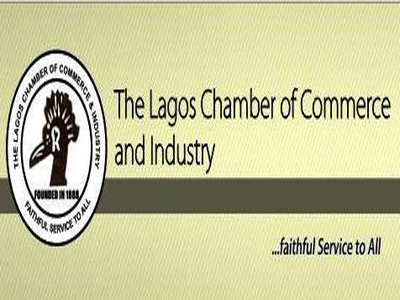The Lagos Chamber of Commerce and Industry(LCCI) has urged the Federal Government to put into consideration the unintended consequences of the proposed nationwide ban on the use of motorcycles and mining activities.
Dr Chinyere Almona, the Director-General of LCCI, made the plea in a statement, while reacting to the government proposed decision on Saturday in Lagos.
Almona, also appealed to the Federal Government to consider the implications such action would have on the mining industry and business environment.
The National Security Council had on Thursday announced that it was considering a nationwide ban on motorcycles and mining activities in the country as part of its strategy to curb terrorist activities, checkmate loopholes and cut off their sources of funding.
This was the outcome of the meeting presided over by President Muhammadu Buhari at the State House in Abuja.
Addressing State House Correspondents after the meeting, the Attorney-General of the Federation and Minister of Justice, Abubakar Malami, said that investigations were still ongoing, especially to establish the correlation between mining and motorcycles which was suspected to be providing funding for the supply of arms to the terrorists.
Almona said: “We cannot afford to jeopardise the fortunes of mining in Nigeria with a blanket ban on mining activities, when we should be able to isolate illegal miners and demobilise criminals from mining sites.
“We urge the government to reconsider ways to demobilise criminal activities from mining sites and create a safe environment, where mining can thrive.”
She said though, the chamber understood that criminals were using motorcycles as a means of mobility and escape from the security agencies, it was unacceptable to label the entire Nigerian mining ecosystem as sponsors of banditry and terrorism.
According to her, this looked like an attempt to blame all legitimate mining operators for the activities of banditry and terrorism in the country.
“The Nigerian mining industry employs several thousands in the formal and informal economy of the country,” she said.
Almona said that the artisanal and small-scale mining ecosystem accounted for at least 90 per cent of activities in the mining sector.
She said: “The announcement of the intended ban on mining, had further validated to foreign and local investors, that it is unsafe for them to invest in the country’s mining sector.
“Furthermore, the existing local investors who have secured loans to finance their mining projects across Nigeria, are at risk of losing their investments of several years.
“The proposal has further damaged the diversification plans of the Federal Government to pursue a non-oil exports-based economy.
“According to the Central Bank of Nigeria’s (CBN) economic reports from 2015 to 2020, the total value of solid minerals exports within that period was 1.75 billion dollars.
“Duly licenced mining companies should be clearly differentiated and distanced from the activities of bandits and terrorists, whom the National Security Council have based their proposal upon,” she said.
The LCCI director-general stressed the need for enforcement of all necessary laws and policies to guarantee security of local and foreign investments in the solid minerals sector, for guaranteed returns on investments.
She urged government to empower the solid minerals and mining sector, through the deployment of Geographic Information System (GIS), automation of application and processing of mining licences.
Almona also identified, leases and permits, all through a one-stop-shop platform.
She explained that the Integrated Automation and Interactive Solid Minerals Portal (IAISMP) should truly be a “go-to portal” for real time information on the sector.
The director-general pointed out there was need for government to also finalise plans to build a national electronic geo-data archiving management system to be called the Nigerian Geo-Data Centre at the Nigerian Geological Survey Agency (NGSA).
She said that all these would make it easy to access information on mining by investors across the globe.




